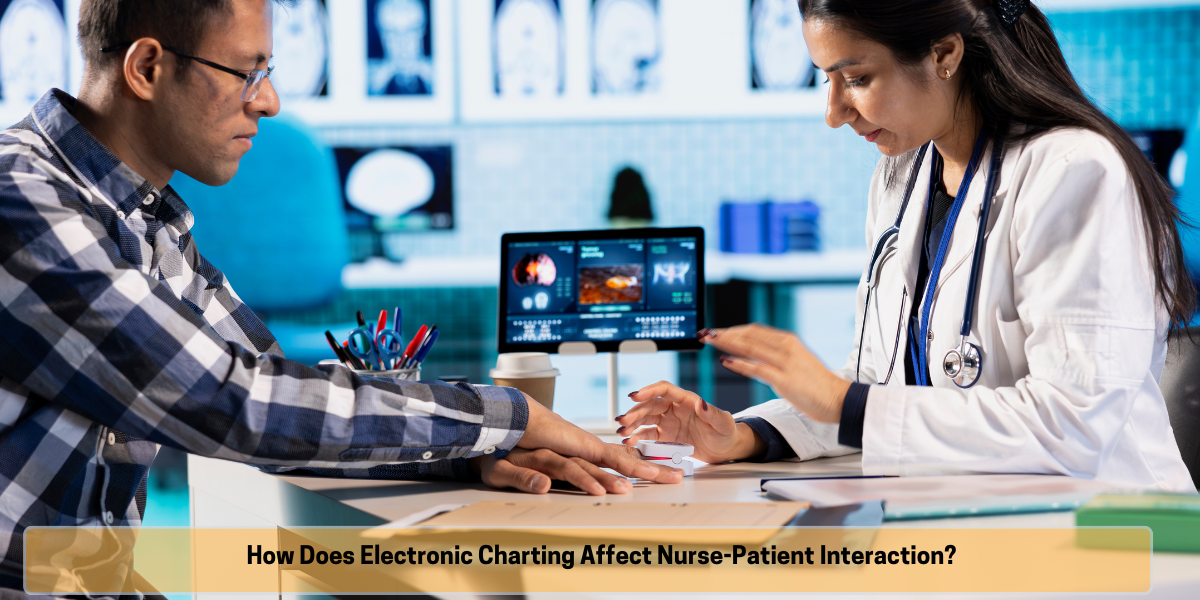The healthcare sector has adopted technology across many areas, but one of the most significant changes has been the move from traditional paper-based Medication Administration Records (MAR) to electronic systems, commonly referred to as eMAR. For nurses and care home staff, this shift is not just a change in record-keeping—it has transformed how they interact with patients and provide care. Here, we explore how eMAR systems affect nurse–patient interactions and enhance the overall quality of care.
More time for meaningful interactions
In busy care environments, every minute counts. Paper-based systems often required nurses to leave a patient’s side to record medication details, cross-check handwritten notes, or retrieve information. eMAR eliminates much of this extra work by allowing medication details to be recorded directly at the point of care. This efficiency means nurses spend less time on paperwork and more time with patients. That time can be used to offer reassurance, hold personal conversations, and provide support—strengthening the nurse–patient bond and improving the overall care experience.
Clearer and more informed communication
eMAR systems give nurses instant access to vital patient information such as medication history, allergies, and pre-existing conditions. With this real-time data, nurses can provide patients with accurate explanations of their treatment plans and address questions confidently. This clarity builds stronger understanding and helps reduce confusion or anxiety. When patients feel informed, they are more likely to engage positively in their own care.
Improved safety through reduced errors
Medication errors are a serious risk in healthcare. Traditional paper charts leave room for mistakes such as missed doses, wrong medications, or incorrect dosages. eMAR reduces this risk through automated checks, alerts, and digital safeguards. Also, patients gain peace of mind knowing their treatment is handled safely, which reinforces their trust in the care process.
Faster and more efficient documentation
Documentation remains an essential part of nursing, but with paper-based systems it could be time-consuming and repetitive. eMAR streamlines this process, allowing records to be completed quickly and accurately. The saved time can be redirected towards direct patient care. As a result, patients benefit from faster, more responsive support, while nurses can concentrate on personal interaction and high-quality care.
Better collaboration across care teams
Modern healthcare is multidisciplinary, involving nurses, doctors, physiotherapists, and other specialists. eMAR creates a centralised record system that is instantly accessible to the entire care team. With shared, up-to-date patient information, collaboration becomes easier and decision-making more informed. This leads to a more coordinated approach to care, ensuring patients benefit from seamless teamwork across different disciplines.
Continuous monitoring of patient progress
A further advantage of eMAR is its ability to track patient progress over time. Nurses can easily review changes in medication, health status, or treatment response. This ongoing monitoring ensures timely adjustments to care plans and provides patients with regular updates about their progress. Such proactive management improves outcomes and reinforces confidence in the quality of care provided.
By reducing paperwork, improving accuracy, and supporting collaboration, eMAR allows nurses to deliver safer, more attentive, and more compassionate care. Ultimately, patients benefit from clearer communication, improved safety, and stronger personal connections with their caregivers.







